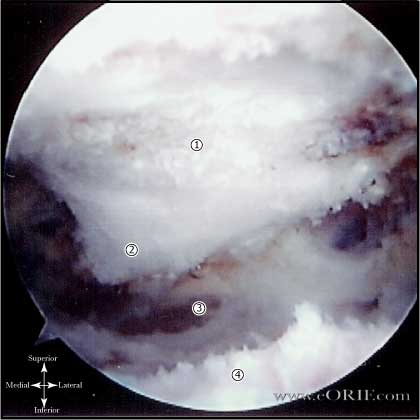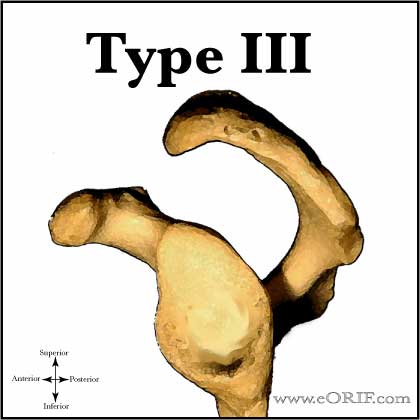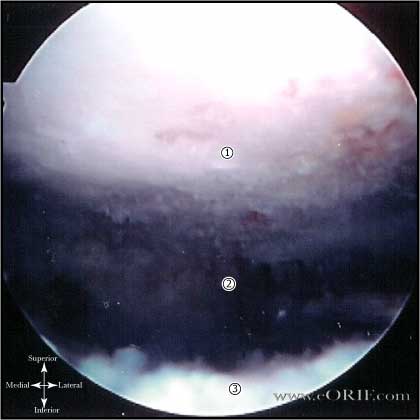synonyms:
Subacromial Decompression CPT
Subacromial Decompression Indications
Subacromial Decompression Contraindications
Subacromial Decompression Alternatives
- Conservative care (NSAIDs, physical therapy, subacromial injection)
Subacromial Decompression Pre-op Planning
Subacromial Decompression Technique
- Ensure they have full internal rotation pre-operatively, if not consider Posterior Capsular Contracture as cause of pain and consider posterior capsular release. (Ticker JB, Arthroscopy 2000;16:27-34).
- Perform Shoulder Arthroscopy
- Place scope into subacromial space via posterior portal incision. The subacromial space is largest and most easily entered beneath the anterolateral corner of the acromion.
- Lateral portal under the anterior half and parallel to the acromion.
- Perform full bursectomy to relieve any sources of crepitation
- In subacromial space visualize CA ligament, anterior and lateral margins of acromion, AC joint. Pts with impringement will have fraying of CA ligament
- Release CA ligament. BE wary of acromial branch of thoracoacromial artery bleeding, and stop with cautery if it occurs. Do not release CA ligament in patients with RTC-deficient shoulders.
- Perform initial acromioplasty using a burr through the lateral portal, then complete acromionplasty with a posterior cutting block technique.
- Evaluate undersurface of the distal clavicle for impinging osteophytes. Do not violate AC joint. (Fischer BW, Arthroscopy 1999;15:241-8). If impinging osteophytes are present consider Distal Clavicle Resection
- Consider transverse humeral ligament release(Ruotolo C, Arthroscopy 2002;18:65-75), Distal Clavicle Resection, Biceps Tenodesis or tenotomy based on pre-operative evaluation.
Subacromial Decompression Complications
Subacromial Decompression Follow-up care
- Post-op: sling, Pendulum ROM exercises
- 7-10 Days: Check incisions. Progress with activities as tolerated, PT
- 3 Weeks: Assess ROM, gradually return to normal activities. Continue PT as needed.
- 6 Weeks: Assess function, ROM. Continue Home exercise program.
- 3 Months: Full normal activities.
Subacromial Decompression Outcomes
- 81% good to excellent results at 6-10 years. (Stephens SR, Arthroscopy 1998;14:382).
Subacromial Decompression Review References




